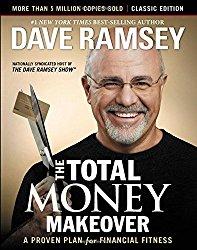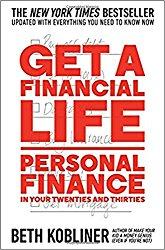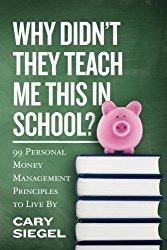I was thinking the other day about what it would be like to go out on your own, a few hundred dollars in your pocket, and try to make it in the world. Thinking about trying to find a place to live, find a job, buy clothes, food, and other necessities. One thought was that it would be difficult for someone who came from an impoverished background, with both parents on welfare because of medical conditions or lifestyle choices, to get a decent job because such an individual would not be able to get the education needed to move into better paying jobs. It seemed like they would be at a great disadvantage to someone from an upper-class or middle-class background.
But then it occurred to me – those in the US whose parents are poor have an equal ability to pay for college, even at elite school, as those who come from wealthier backgrounds. If anything, they are in better shape than the typical middle-class family. How so?
Hey – if you like The Small Investor, help keep it going. Buy a copy of SmallIvy Book of Investing: Book1: Investing to Grow Wealthy, buy one of the products shown, or just click on one of the product links and then browse and buy something else you need from Amazon’s huge collection. The Small Investor will make a small commission each time you buy a product through one of our links.
There is an enormous amount of educational welfare available, coming from both the Federal Government and the schools themselves, that really make the ability to pay for school equal for all, or even to the advantage of those from poor backgrounds. A student whose parents make $150,000 per year will probably pay something like $25,000 per year to go to Duke University or Harvard. If that same student’s parents also had a couple of million dollars in the bank, even if they made $80,000 per year instead of $150,000 per year in salary, they would probably pay most of all of the $45,000 per year it costs to attend Duke or Harvard, including room and board.
Someone whose parents make nothing and have nothing saved up would pay nothing to go to those same schools. They could go to a community college, a state school, or even an elite private university and pay nothing to do so! Between the reductions or eliminations in tuition that these schools provide to students who show financial need and the grants given out by the federal government, which do not need to be paid back, students from poor backgrounds see little if any cost for going to college. So there is really no financial reason for a student not being able to leave home and gain the education needed to make very good money in the US even if his/her parents didn’t make more than $10,000 per year their whole lives.
So the first lesson for those reading this article from poor backgrounds:
There is no financial reason that you cannot learn the skills to increase your income.


Now it is totally different for someone whose parents do make decent money, but are not willing to support their children financially for college. In this case, the schools and the federal government will look at your parent’s wealth and income and expect them to support a portion of your educational costs based on what they could fund if they wanted to, even if they choose not to do so. This is really unfortunate since there are parents out there who do cut their children off when they leave home even if the schools and the government expect them to provide support. It is understandable from the school’s prospective, however, since if colleges just took your word for it, virtually everyone would not give any money to their children for college so that they could go for free. (Boggles the mind to see that people who would never take charity for other things see nothing wrong with having others fund their children’s education when they could do so themselves, but apparently there’s no taboo when it comes to accepting college financial aid.) So this is a lesson for parents of middle-class or upper-class background:
Your children will likely get little in terms of financial aid, regardless of whether or not you have saved up money for their college education, so start saving early and plan on footing at least part of the bill to keep them from being buried in student loans.
There are some ways out get out from under this cloud, including waiting until you are 23 or older to go to college, or getting married right out of high school. Some of the other criteria for not needing to include your parent’s information on financial aid forms are listed here. There are also a lot of scholarships out there that can help cover college costs that don’t require showing financial need. These might be an option if you generally have good grades and have been involved in various activities to show you are well-rounded.

Now, there are other factors that keep children from impoverished families from going to college and raising their income. Many don’t have good grades while they are in grade and high school, which is understandable if they have no one at home pushing them at all, or even have a home life that makes it difficult for them to perform well in school. But again, there are still ways to make a better life for yourself than a series of dead-end, low-pay jobs.
Community colleges: If you are able make it into a community college, which again could be free for you if you come from a poor family background, you have another chance to change your destiny. If you concentrate on your studies and get good grades at a community college, many universities would then accept you into their schools. If you are fortunate enough to get in, spend at least two hours per week doing homework and studying for your classes for every credit hour you are taking. For example, someone taking 12 hours should be doing 24 hours of work outside of class, for a total of 36 hours per week. Also, go to office hours for help if you don’t understand something, and spend time getting to know your professors since you will need them for references when you apply to the university.
Trades: Jobs in the trades pay a lot of money. If you can do electrical work, plumbing, carpentry, computer repairs, and other similar jobs, you can make a lot more than you will working in retail or at a fast food job. Many jobs in these areas are earned through experience with a professional in the industry. If you are willing to be a good worker, showing up on time, being willing to work hard and get the job done, and are willing to learn all that you can while you are on the job, you can get a job with a trade professional and learn what you need to eventually do work on your own.

A final issue for those from poor backgrounds is that their families may continue to drag them down. Someone whose parents have serious drug or health issues may feel an obligation to take care of siblings still in the home or their parents after they leave the house. Realize, however, that you can’t save someone from drowning if you yourself are barely keeping your head above water. It can be better for you and for them if you work to get yourself on firm financial footing first and then help where possible instead of trying to support siblings and parents by working a low-pay job and giving them what you can. You might also be preventing them from getting welfare because you cause the income of their household to be too high to qualify for food stamps and housing assistance.
While it is difficult, the best option may be to cut financial ties temporally and concentrate on getting through school and raising your income, and then helping them out. Encouraging your siblings to do what they can, such as getting a job while still in high school and/or working hard at school to get the grades needed to qualify for college is also better than trying to support a family on a minimum wage salary. Two, three, or four people can do more than a single person can do alone. Remember that anyone who has health has substantial wealth, even if they have no money in their bank accounts.
Have a burning investing question you’d like answered? Please send to [email protected] or leave in a comment.
Follow on Twitter to get news about new articles. @SmallIvy_SI
Disclaimer: This blog is not meant to give financial planning or tax advice. It gives general information on investment strategy, picking stocks, and generally managing money to build wealth. It is not a solicitation to buy or sell stocks or any security. Financial planning advice should be sought from a certified financial planner, which the author is not. Tax advice should be sought from a CPA. All investments involve risk and the reader as urged to consider risks carefully and seek the advice of experts if needed before investing.
